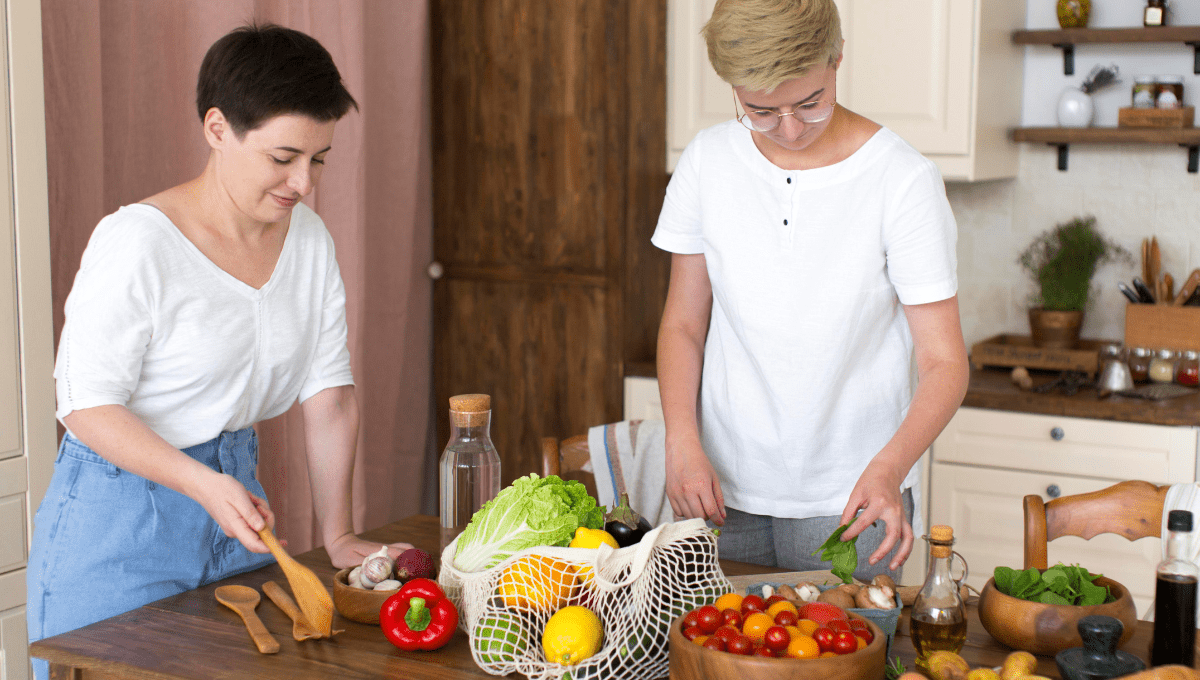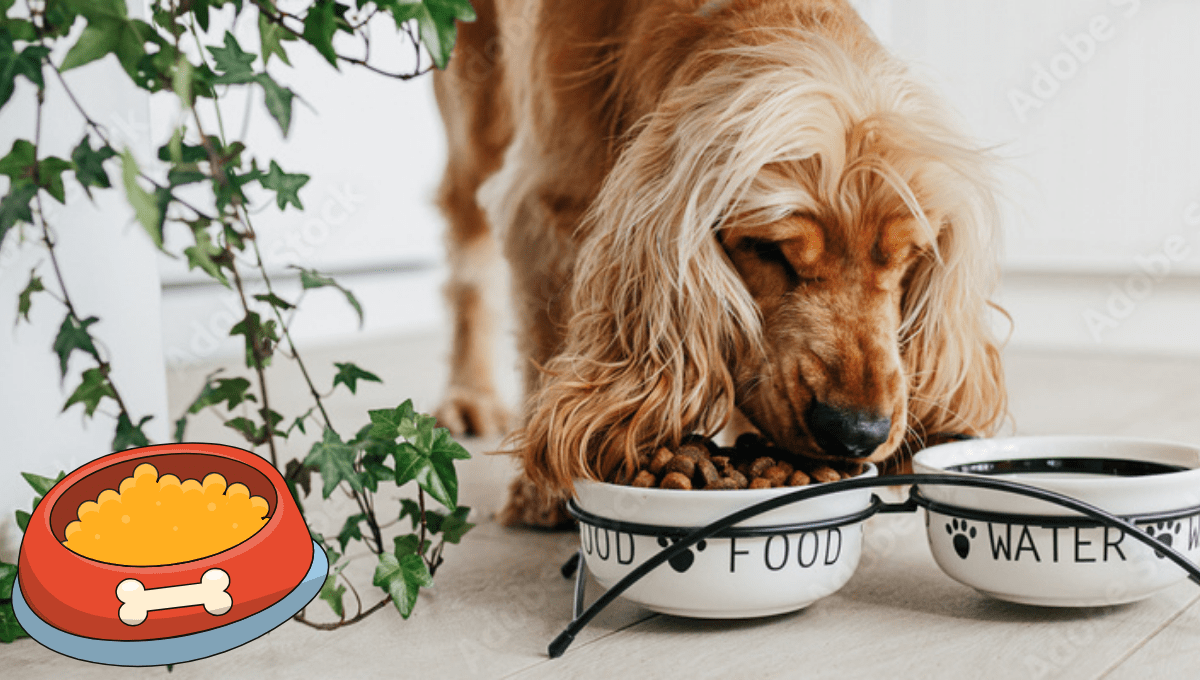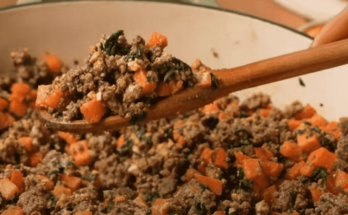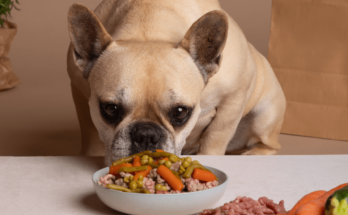Nourishing Your Pup Homemade Food for Dogs to Gain Weight
Introduction:
As pet owners, we all want to provide the best nutrition for our furry friends. However, with the plethora of commercial dog foods available in the market, it can be difficult to know if we’re giving our pups the best possible diet. This is where the concept of homemade food for dogs to gain weight comes into play. In this article, we’ll explore why this approach can be beneficial for your pup and how you can go about it.
Firstly, let’s discuss why your dog might need to gain weight. Some dogs are naturally thin, while others may have lost weight due to illness or stress. Whatever the reason, it’s important to ensure that your dog is at a healthy weight. Being underweight can lead to a host of health problems, including a weakened immune system, muscle wasting, and even organ failure.
Now, let’s talk about how to make homemade food for your dog to gain weight. It’s important to note that you should always consult with your veterinarian before making any significant changes to your dog’s diet. That being said, there are a few general guidelines you can follow. Your dog’s meals should consist of a balance of protein, healthy fats, and carbohydrates. Some good sources of protein include chicken, beef, and fish. Healthy fats can be found in sources such as salmon oil and coconut oil. Carbohydrates can come from sources like sweet potatoes and brown rice.
Finally, we’ll provide you with a delicious homemade food recipe that’s perfect for dogs looking to gain weight. This recipe includes ingredients such as ground beef, brown rice, and sweet potato. It’s easy to make and your furry friend is sure to love it. By making your dog’s food at home, you can ensure that they’re getting the best possible nutrition and helping them to achieve a healthy weight.

Understanding Your Dog’s Nutritional Needs:
Before we begin our exploration of the culinary world of dogs, it’s important to understand why some dogs may experience difficulty in maintaining a healthy weight. Several factors, such as age, breed, metabolism, and underlying health conditions, can contribute to this challenge. For instance, some breeds may have a higher risk of obesity due to their genetic makeup, while senior dogs may experience a decline in their metabolic rate, making it harder for them to burn calories.
Additionally, underlying health conditions such as hypothyroidism or Cushing’s disease may contribute to weight gain. Therefore, it’s always advisable to consult with your veterinarian to assess your dog’s overall health and determine the best weight management plan that aligns with their specific needs. By working closely with your vet and implementing a customized weight gain program, you can help your furry friend achieve and maintain a healthy weight, which is essential for their overall well-being and longevity.
Why Homemade Food for Dogs to Gain Weight?
It’s important to remember that not all commercial dog foods are created equal, and may not always cater to the specific nutritional needs of your furry friend. Many brands offer products that are chock-full of fillers and preservatives, which can compromise the nutritional value of the food and leave your dog feeling unsatisfied and unhealthy.
One great alternative to commercial dog food is Homemade Food for Dogs to Gain Weight. By preparing your dog food at home, you can have complete control over the ingredients that go into it. This allows you to ensure that your pup is getting a balanced and wholesome diet tailored to their specific requirements.
Not only does homemade dog food give you more control over the ingredients, but it can also be a cost-effective option in the long run. Plus, many dogs find homemade food to be more flavorful and satisfying than commercial options, which can help encourage them to eat and maintain a healthy weight. So if you’re looking for a way to ensure your dog is getting the best possible nutrition, consider making homemade food for them – it just might be the perfect solution.

Balancing Act of Benefits and Burdens.
If you’re looking to help your furry friend gain some weight, homemade food for dogs can be an excellent option. Not only does it allow for personalized control over their diet, but it also provides a range of other benefits that commercial dog food can’t offer.
One of the most significant advantages of homemade dog food is that you control every ingredient that goes into it. This level of customization can be incredibly valuable, especially if your dog has specific dietary needs or allergies. By using fresh, wholesome ingredients, you can ensure that your dog is getting all the nutrients they need to thrive.
In addition to being more nutritious, homemade dog food can also be more hydrating. Fresh ingredients tend to have higher water content, which can help keep your dog properly hydrated. This can also result in less waste to clean up, which is always a plus.
Another benefit of making your dog’s food from scratch is that you can avoid fillers, preservatives, and artificial additives that are often found in commercial dog food. By using high-quality ingredients, you can rest assured that you’re giving your dog the best possible nutrition.
Perhaps one of the most rewarding aspects of making homemade dog food is the bond it can help foster between you and your furry friend. Cooking for your dog can be a labor of love, and seeing how much they enjoy their meals can be incredibly gratifying. It’s a unique way to show your dog how much you care.
However, it’s important to note that making homemade dog food isn’t always easy. It requires careful consideration and planning to ensure that your dog is getting all the nutrients they need. It’s also essential to consult with your vet before making any significant changes to your dog’s diet to ensure that it’s safe and appropriate for their needs.

The Biggest hurdle lies in ensuring a nutritionally balanced diet.
Dogs, like humans, require a specific set of vitamins, minerals, and macronutrients to thrive. Striking this delicate balance without the expertise of a veterinary nutritionist can lead to deficiencies, imbalances, and even health complications. Simply adding table scraps to your plate won’t suffice – your dog needs a carefully formulated recipe tailored to their age, breed, activity level, and any underlying health conditions.
Secondly, time and cost factors cannot be ignored. Sourcing fresh ingredients, prepping meals, and ensuring proper storage requires significant time and dedication. This can be particularly demanding for busy individuals. Additionally, high-quality ingredients can add up, potentially exceeding the cost of premium commercial kibble. Remember, you’re not just paying for food, but also the time and effort invested in its preparation.
Finally, improper food handling and storage pose potential health risks for both you and your dog. Raw ingredients like meat can harbor harmful bacteria if not handled and stored correctly. Contamination can lead to foodborne illnesses for both you and your dog, necessitating heightened hygiene practices in the kitchen.
So, is homemade food the golden ticket to your dog’s weight gain journey? Not necessarily. While it offers undeniable benefits like customization and control, the potential pitfalls regarding nutritional balance, time commitment, and cost, along with food safety concerns, cannot be underestimated. Consulting a veterinary nutritionist is crucial to navigating these challenges and creating a safe, effective, and delicious homemade diet for your dog. Remember, their health and well-being should always be the top priority, regardless of how tempting that bowl of homemade goodness might be.
Creating a Balanced Meal:
To help your furry friend gain weight, it’s important to include high-quality sources of protein such as lean meats, fish, eggs, and dairy products. These foods are essential for building and repairing muscle tissue, which is particularly important for dogs looking to gain weight.
Healthy fats are also a crucial component of a well-balanced diet for dogs. Fatty fish, such as salmon, and plant-based sources, like flaxseed oil, can help support your dog’s overall health and promote weight gain.
Carbohydrates are another essential source of energy for dogs, but it’s important to choose the right types of carbs. Whole grains like brown rice, quinoa, and oats are excellent options, as they provide a steady release of energy throughout the day.
1. Proteins:
Incorporating protein-rich foods into your furry friend’s diet is crucial for their muscle growth and repair. The amino acids present in protein sources such as chicken, turkey, beef, eggs, and fish are essential for the development of muscle tissue and can be particularly beneficial for dogs who need to gain weight. Providing your dog with high-quality sources of protein can help support their overall health and well-being, as well as maintain a healthy weight and increase their strength and endurance.
2. Fats:
In addition to proteins, fats are also an essential component of a balanced diet for your furry friend. Fats provide a concentrated source of energy that can help your dog maintain their energy levels throughout the day. Sources of healthy fats for dogs include olive oil, coconut oil, and fatty fish like salmon. Incorporating these fats into your dog’s diet can help keep their coat healthy and shiny, as well as promote overall good health. However, it’s important to remember that fats should be consumed in moderation, as excessive amounts can lead to weight gain and other health issues.
Incorporating protein-rich foods into your furry friend’s diet is crucial for their muscle growth and repair. The amino acids present in protein sources such as chicken, turkey, beef, eggs, and fish are essential for the development of muscle tissue and can be particularly beneficial for dogs who need to gain weight. Providing your dog with high-quality sources of protein can help support their overall health and well-being, as well as maintain a healthy weight and increase their strength and endurance.
3. Carbohydrates:
Carbohydrates are another essential component of a balanced diet for dogs as they provide a quick source of energy to keep them active and healthy. Sources of healthy carbohydrates for dogs include sweet potatoes, brown rice, and quinoa. Incorporating these into your dog’s diet can help provide the energy they need to play and exercise, as well as support their overall health and well-being. However, it’s important to remember that carbohydrates should also be consumed in moderation to prevent weight gain and other health issues.
4. Vitamins and Minerals:
Vitamins and minerals are indeed crucial for supporting overall health in dogs. They help with various bodily functions, from maintaining healthy bones and teeth to supporting their immune system. A great way to provide your furry friend with these essential nutrients is by incorporating a variety of vegetables into their diet. Vegetables such as carrots, peas, and leafy greens are excellent sources of vitamins and minerals that can help keep your dog healthy and strong. However, it’s important to note that not all vegetables are safe for dogs to consume, so it’s best to do some research before introducing new foods to their diet.

Recipe for Homemade Dog Food for Weight Gain:
This recipe is a perfect meal for your furry best friend, made with healthy and nutritious ingredients. You will need 1 pound of ground turkey, 1 peeled and chopped sweet potato, 1 cup of brown rice, 1 cup of chopped spinach, 1/2 cup of peas, 1 tablespoon of olive oil, and 1 teaspoon of dried parsley.
To make this dish, start by cooking the brown rice according to the package instructions. In a large pan, heat 1 tablespoon of olive oil over medium heat. Add 1 pound of ground turkey and cook it until it is no longer pink. Then, add the chopped sweet potato to the pan and cook for an additional 5-7 minutes, until the sweet potato is tender.
Next, add the cooked brown rice, chopped spinach, and peas to the pan and stir to combine. Make sure all the ingredients are well mixed. Finally, add 1 teaspoon of dried parsley to the pan and stir to distribute the ingredients evenly.
It is recommended to allow the mixture to cool to room temperature before serving it to your dog. This recipe makes approximately 4 servings, depending on the size of your dog. You can store any leftovers in an airtight container in the refrigerator for up to 3 days. Your furry friend will surely enjoy this healthy and delicious meal! Ingredients:
Ingredients.
1 pound ground turkey
1 sweet potato, peeled and chopped
1 cup brown rice
– 1 cup chopped spinach
– 1/2 cup peas
– 1 tablespoon olive oil
– 1 teaspoon dried parsley
Instructions.
1. Cook the brown rice according to package instructions.
2. In a large pan, heat the olive oil over medium heat. Add the ground turkey and cook until it is no longer pink.
3. Add the chopped sweet potato to the pan and cook for an additional 5-7 minutes, until the sweet potato is tender.
4. Add the cooked brown rice, chopped spinach, and peas to the pan and stir to combine.
5. Add the dried parsley to the pan and stir to distribute the ingredients evenly.
6. Allow the mixture to cool to room temperature before serving to your dog.
This recipe makes approximately 4 servings, depending on the size of your dog. Store any leftovers in an airtight container in the refrigerator for up to 3 days. Enjoy!

Tips:
When it comes to feeding your dog, it’s important to ensure that all the ingredients you use are safe and healthy for your furry friend. Make sure to choose dog-friendly ingredients that are free from any seasonings or additives that could be harmful to your dog’s health.
In addition to choosing the right ingredients, you should also adjust your dog’s portion sizes based on their weight, activity level, and weight gain goals. This will help to ensure that your dog is getting the right amount of nutrients they need to maintain a healthy weight and stay active.
When you’re introducing a new diet to your dog, it’s important to do so gradually. This will allow your dog’s digestive system to adjust to the new food and help to prevent any digestive issues. Start by mixing a small amount of the new food with your dog’s current food, and gradually increase the amount of the new food over time until your dog is fully transitioned to the new diet.
Conclusion:
Homemade dog food can be a game-changer for dogs struggling to gain weight. Not only does it offer a personalized approach to nutrition, but it also strengthens the bond between you and your furry friend. Remember, consistency is key, and always monitor your dog’s weight gain progress, ma
If you have a dog that is struggling to gain weight, homemade dog food can be a great option to consider. Not only does it give you the opportunity to provide a personalized approach to your dog’s nutrition, but it also helps to strengthen the bond between you and your furry friend.
It’s important to keep in mind that consistency is key when it comes to feeding your dog homemade food. You’ll want to monitor your dog’s weight gain progress closely and make adjustments to the recipe as needed. This will ensure that your dog is getting the right amount of nutrients and calories to support healthy weight gain.
When you’re preparing homemade dog food, it’s important to focus on using high-quality, whole-food ingredients. Lean proteins, healthy fats, and nutrient-rich vegetables can all be great additions to your dog’s diet. You may also want to consider adding supplements like fish oil or probiotics to support your dog’s overall health.
With a nutritious and delicious homemade diet, your pup will be on the path to a healthier, happier, and heartier life. Not only will they enjoy the taste and variety of their new diet, but they’ll also benefit from the increased energy, improved digestion, and better overall health that comes with a balanced and nutritious diet. king adjustments as needed. With a nutritious and delicious homemade diet, your pup will be on the path to a healthier, happier, and heartier life.





2 Comments on “Homemade Food for Dogs to Gain Weight | Best Guidence.”